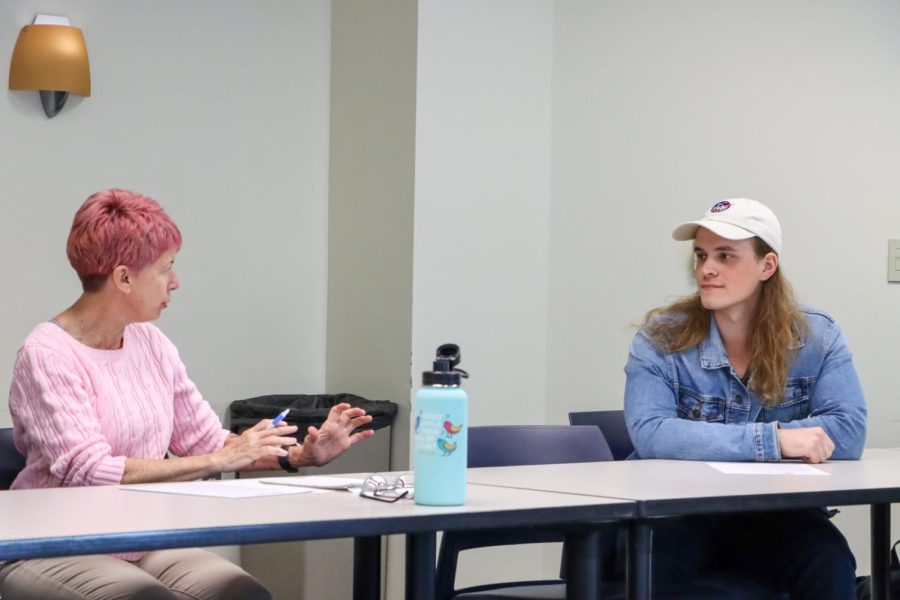GV helps students get involved in undergrad research
GVL / Bethann Long
Oct 31, 2022
Undergraduate research is a topic that many students may not understand the purpose of, or may not know what steps to take in order to get involved.
In order for students to get a grasp on all of this information and more the Grand Valley State University Office of Undergraduate Research and Scholarship (OURS) hosted an informational session to help explain the process.
Some GVSU faculty are required to conduct research in their respective fields, which creates additional opportunities for students to get involved and learn from people with real-world experience.
“We develop questions, maybe to address a particular problem or just to find out new information about something in the universe,” said Jodee Hunt, a biology professor and faculty fellow of OURS.
Being involved in undergraduate research doesn’t necessarily mean it needs to be in a STEM field. Students could potentially get the opportunity to introduce themselves to other types of research as well.
“No matter what major a student has, they could potentially participate in this scholarly adventure that we can call research,” Hunt said.
At the session held on Thursday, members of OURS explained what students do in a research setting, what kinds of research can be done and how to go about finding a faculty mentor and an opportunity to do research.
“Sometimes the kind of research that a student might want to do might be done by a professor in a department or discipline that they might not think of,” Hunt said. “I encourage students to think outside the box and go to departments where there might be some overlap.”
Hunt highlighted that there are probably as many benefits to doing scholarly work and research with faculty mentors as there are students that pursue it. There are various reasons that a student might want to do research such as wanting to gain more experience in an area before contemplating a graduate program or seeing if including research is the right thing to do in terms of their future career.
“Sometimes they want to do research to dip their toes in the water and see if they really like the idea of going to graduate school and doing research as part of their career,” Hunt said.
While this is an educational tool to help students after graduation, Hunt claims that there are more benefits as well as educational ones.
“Often the students that work within a lab or within a team doing scholarly work, they get to be really good friends,” Hunt said. “So students can find out about themselves, make some great connections, not only with faculty but also with students.”
The final benefit highlighted was the fact that students involved in research could then get the opportunity to present their work at conferences on local, state, regional, national and even international levels.
“We often take students to our conferences with us and they get to present the work they’ve been doing,” Hunt said. “It’s a terrific networking opportunity, professional growth, it’s just I’ve never had the students not really benefit.”
Before getting involved in undergraduate research, it is important for students to remember to go with their intuition and do whatever feels right for them.
“If it just feels very wrong to you, then keep looking for other opportunities because you’re going to find one where you feel welcomed and included and comfortable, maybe a little out of your comfort zone,” Hunt said.
It is highly recommended for students who might be interested to do the leg work in terms of doing the homework for various research opportunities. For more information on undergraduate research, contact the OURS program at [email protected].






















